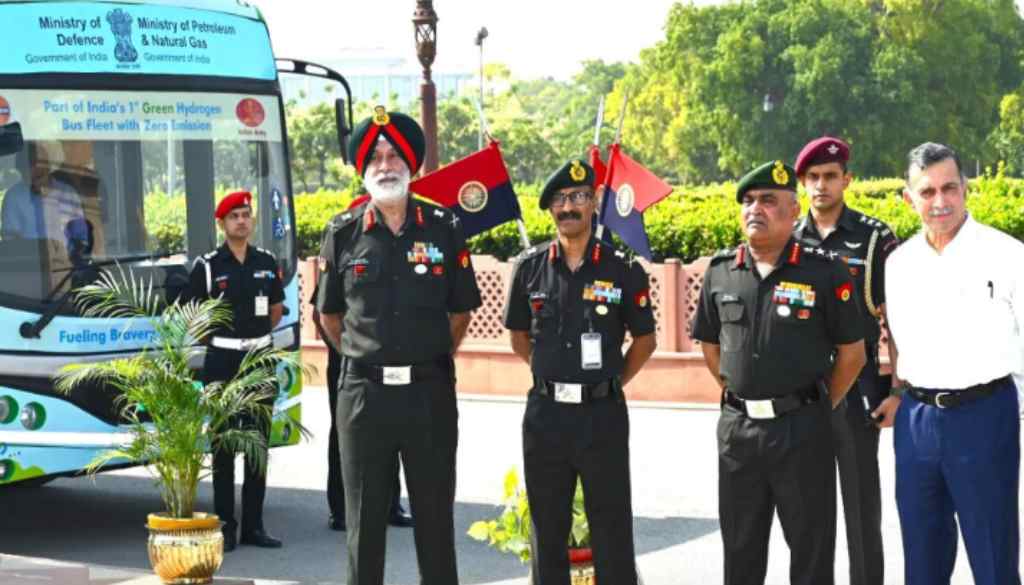Indian Army Adopts Hydrogen-Powered Buses in Pollution Reduction Drive

Pune, 28th May 2024: In a bid to combat pollution and promote the use of clean fuel vehicles, the Indian Army has embraced hydrogen-powered buses provided by Indian Oil. This move marks a significant step towards environmental sustainability and cleaner transportation. Army Chief Manoj Pandey and Indian Oil Chairman Shrikant Madhav were present during the handover ceremony, signifying the collaboration between the two entities. The deployment of these buses reflects a proactive approach by the Indian Army in adopting eco-friendly transportation solutions.
The hydrogen bus allocated to the Indian Army boasts a seating capacity of 37 individuals and can be filled with 30 kilograms of hydrogen in a single tank. This enables the bus to travel approximately 250 to 300 kilometers on a full tank, offering both efficiency and reduced emissions. The initiative underscores the importance of transitioning towards alternative fuel sources to mitigate the environmental impact of traditional fossil fuels.
Prior to this development, the Indian Army had forged an agreement with NTPC on 21st March 2023 for hydrogen utilization. This agreement aimed to establish a green hydrogen-based microgrid along the country’s northern border. Subsequently, a green hydrogen microgrid with a capacity of 200 kilowatts was successfully implemented in Chushul, demonstrating progress in sustainable energy initiatives.
Efforts towards advancing vehicle technology are underway, supported by the Ministry of Road Transport and Highways. Minister Nitin Gadkari’s advocacy for hydrogen-powered vehicles exemplifies the government’s commitment to promoting innovative and eco-friendly transportation solutions. Moreover, industry players like Tata and Reliance are actively engaged in developing hydrogen-powered buses, contributing to the transition towards cleaner mobility options.
The adoption of hydrogen fuel cell technology by the Indian Army signifies a paradigm shift towards sustainable and environmentally conscious transportation practices. As stakeholders continue to prioritize eco-friendly initiatives, such initiatives are poised to play a crucial role in reducing pollution and promoting a greener future.







